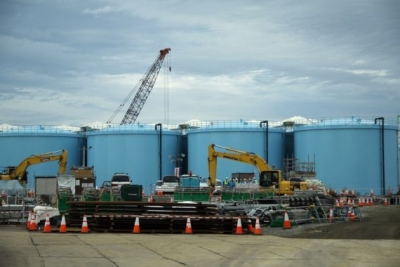
Wellington: Treated nuclear wastewater from Japan’s damaged Fukushima power plant, which, if released into the Pacific Ocean as planned will ultimately reach the High Seas, is “capable of producing cancers”, New Zealand scientists said on Friday.
Japan has planned to release treated nuclear wastewater from the damaged Fukushima Daiichi nuclear power plant into the Pacific Ocean, reports Xinhua news agency.
Jamie Quinton, head of School of Natural Sciences, Massey University, said that in this original unprocessed wastewater, radioactive isotopes of concern were iodine-131 and caesium-137, and that they being used in nuclear medicine radiotherapy means that they have sufficient energy to cause cell death and mutation.
“In other words, they are capable of producing cancers,” Quinton said.
International law expert Duncan Currie told Xinhua that Advanced Liquid Processing System (ALPS) treatment at best does not remove tritium, and there is next to no scientific information of the effects of tritium on the marine environment, including on different species.
Currie noted that planned target in treatment of Fukushima nuclear wastewater is only to remove other radioactive isotopes to “regulatory,” rather than detectable, levels.
Tests of ALPS treatment systems have not been encouraging, Currie said.
“There were several other radioactive products in the unprocessed water that are hazardous to living species and ecosystems. As organisms consume other organisms, more of these radioactive products accumulate in their bodies, which can in turn, end up in humans. So these radioactive elements must be kept out of natural ecosystems as much as possible, especially the ocean,” Quinton said.
David Krofcheck, senior lecturer in Physics at the University of Auckland, agreed by saying the danger of indiscriminately releasing nuclear fission products into the ocean is that the products can find their way into the food chain.
“Once in the food chain the long-lived nuclear fission heavy nuclei like cesium-137, strontium-90, and iodine-131 tend to concentrate in human muscle, bones, and thyroid, respectively. Cancers can be the result,” Krofcheck said.
New Zealand should be concerned over nuclear wastewater effects on the Pacific, Currie said, citing modeling that shows movement of radioactive water to the North Pacific, including for instance through uptake in highly migratory fish and marine mammals.
Currently, an independent panel of global experts on nuclear issues are supporting Pacific Islands Forum nations in their consultations with Japan over its plans to discharge treated nuclear wastewater into the Pacific Ocean.
Quinton noted that if the release of wastewater into the ocean is to proceed, “getting the process correct and within regulations is of particular importance to Japan’s aquaculture-based industries”.
It is in Japan’s economic interest to ensure that waterways remain below internationally acceptable levels for background radiation so that food safety is assured, and their capacity for international trade remains unaffected, he said.
IANS



















